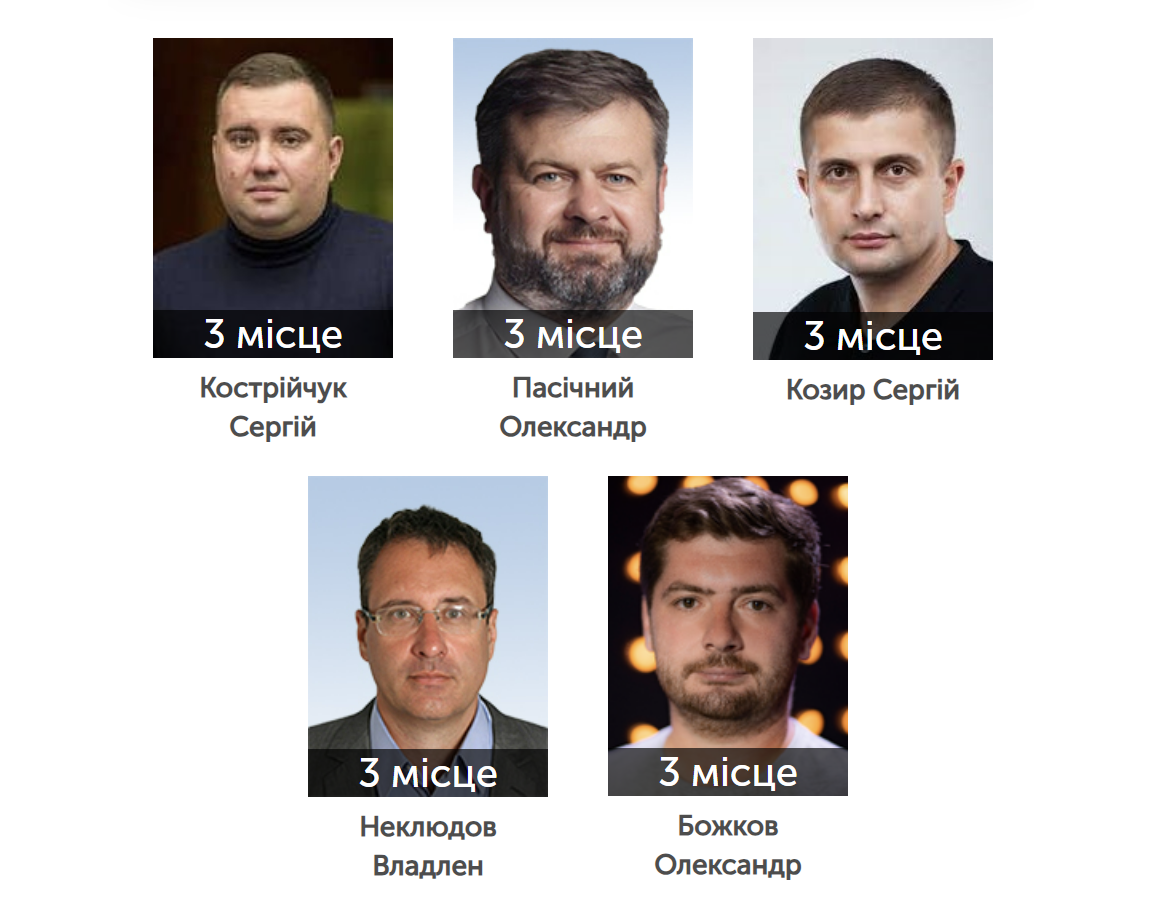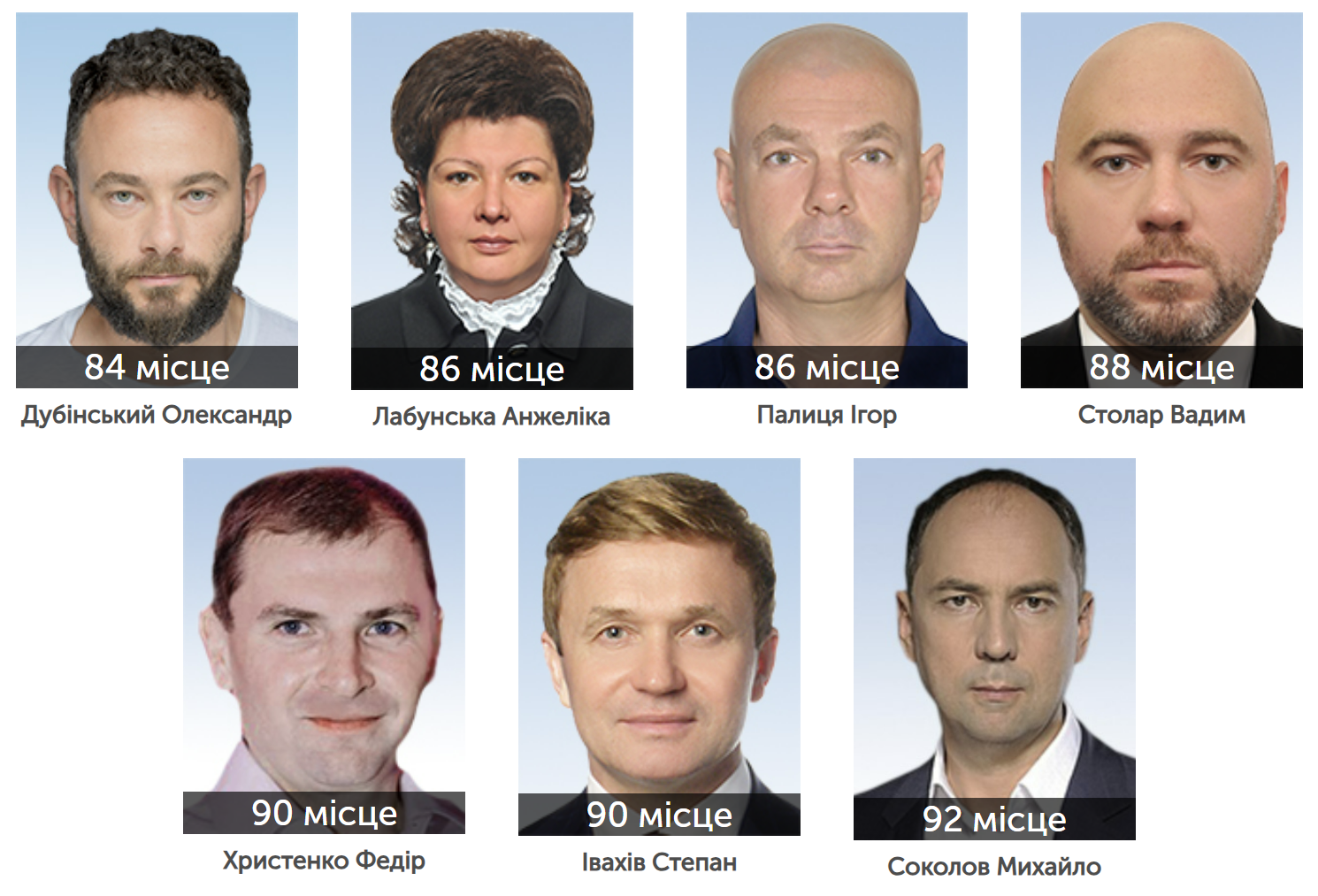In peacetime, the term of the 9th convocation of the Verkhovna Rada would already be nearing its end, but the full-scale Russian invasion has drastically changed the situation, giving the work of Parliament significant importance for Ukraine’s future. The MP Efficiency Score (from the first to the tenth session) allows us to see how much the parliamentarians supported the necessary reforms through their voting.
Key findings
- The tenth session (from September 2023 to January 2024) set a record for the number of 100% reformers, with 22% of MPs supporting all reform bills (there were no anti-reform bills during this time).
- Factions without a clear ideology (Restoration of Ukraine, For Future) show greater inconsistency in their voting patterns.
- The efficiency score of MPs from the Restoration of Ukraine and PFLP groups, formed from the banned pro-Russian OPFL, continues to rise sharply. This may indicate that MPs are afraid to vote against the will of the mono-majority (the Servant of the People faction) or that there is an agreement to exchange votes for reduced scrutiny from law enforcement agencies toward members of the treacherous party.
- The European Solidarity, PFLP, and Batkivshchyna factions are more focused on social issues and weakly support reforms in the areas of governance and finance.
- “Rookie” MPs typically rank high in efficiency scores, but their performance gradually declines over time.
- The average efficiency score of men and women in the Verkhovna Rada is the same (68%), but women are more likely to take moderate positions. There are fewer reformers (15% compared to 25% among men) and fewer anti-reformers (6% compared to 16% among men) among them.
The full rankings of MPs, including rankings by faction and by type of people’s deputies (such as “rookies” or “experienced,” majoritarians or list MPs, etc.), can be viewed on a separate website. In this article, we analyze the data from the 10th session. The previous issue of the MP Efficiency Score covered the 9th session.
Methodology: How MP rankings are calculated
MP Efficiency Score is an indicator that shows how people’s deputies voted on reform-oriented laws in the Verkhovna Rada. Those who supported progressive changes have a high rating, while those who opposed or did not vote at all have a low score.
To calculate the efficiency score, we first identify a list of important reformist and anti-reformist bills. Experts from the Reform Index evaluate each bill selected by the Index’s editorial board on a scale from -5 to +5 points, depending on its expected impact on the economy. For instance, a law aimed at improving energy efficiency receives a high positive score, while a law on industrial parks, which reduces budget revenues without significantly boosting economic activity, receives a negative score.
Next, we examine which specific bills a particular MP voted on. If they support a reform-oriented bill, they receive the number of points assigned to that bill by the Reform Index experts. If the MP votes for an anti-reform initiative, their rating decreases by the corresponding number of points. Voting “against” or being absent during the vote is scored as zero points.
The final efficiency score is calculated as the percentage of points the MP earned out of the maximum possible points during their term. For example, if an MP accumulated 80 points out of a possible 100 over 100 days in office, their efficiency score would be 80%.
An ideal score of 100% would be achieved by an MP who voted for all reformist laws and did not support any anti-reform bills. People’s deputies who consistently ignore important changes will have low scores.
Such rankings allow us to track who in Parliament is genuinely driving change in the country and who is merely “sitting idly,” not voting for reforms. Based on the rankings, voters can draw conclusions about the effectiveness of their elected representatives.
At the same time, the MP Efficiency Score is not an exhaustive assessment of an MP’s activity. It does not reflect their work in committees, lobbying for bills, or efforts to oppose harmful legislation, among other activities. Therefore, for a more comprehensive picture, we recommend consulting additional sources. For example, the PolitHub portal by the CHESNO Movement compiles biographies of politicians, including records of unethical or criminal behavior and votes on harmful bills.
Some people’s deputies have had to leave their parliamentary duties for legitimate reasons. We do not count missed votes for these individuals, so their rankings are not reduced due to their absence from parliamentary sessions.
MPs who joined the Armed Forces include Roman Lozynskyi and Roman Kostenko (Holos), Mykhailo Zabrodskyi (ES), Serhii Rudyk (For Future), Sviatoslav Yurash (Servant of the People), Liudmyla Buimister (non-factional MP), and Yana Zinkevych (ES), who serves as the commander of the volunteer battalion Hospitallers.
Since February 24, 2022, we have not counted the votes of these MPs if they were absent from sessions.
Nestor Shufrych (PFLP) has been in custody since September 2023 on suspicion of treason.
For female MPs who were on maternity leave, missed votes did not affect their rating:
- Oleksandra Ustinova (Holos), January 29, 2022 – September 6, 2022;
- Anastasiia Liashenko (Servant of the People), since February 6, 2023;
- Aliona Shkrum (Batkivshchyna) November 23, 2023 – April 23, 2024;
- Sofiia Fedyna (European Solidarity), October 20, 2023 – February 22, 2024;
- Larysa Bilozir (Dovira), November 28, 2922 – April 18, 2023;
- Anna Skorokhod (For Future), December 9, 2019 – April 28, 2020;
- Yelyzaveta Yasko (Servant of the People), March 23, 2023 – November 11, 2023;
- Yuliia Svitlychna (non-factional MP), March 27, 2921 – August 15, 2021;
- Darya Volodina (Servant of the People), November 6, 2022 – May 2, 2023;
- Olha Koval (Servant of the People), June 7, 2023 – October 26, 2023;
- Lesia Vasylenko (Holos), March 23, 2021 – September 21, 2021;
- Liudmyla Marchenko (Servant of the People), July 12, 2023 – January 10, 2024;
- Anastasiia Radina (Servant of the People), December 4, 2019 – April 23, 2020;
- Olha Saladukha (Servant of the People), June 16, 2023 – November 7, 2023.
If you are aware of objective and legitimate reasons for an MP’s absence during voting, please let us know, and we will recalculate their rating.
Rankings leaders
Ranked first with a 100% score for the second consecutive session are the “rookies” Mykola Tararin and Nataliia Loktionova, who took their oaths during the ninth session. (Here and throughout, “rookies” refer to people’s deputies who took their seats in Parliament less than a year ago, excluding those who entered during the 2019 elections. Typically, an MP holds “rookie” status for two sessions.)
This is not surprising, as previous efficiency score assessments have shown that “rookie” MPs typically (though not always) occupy the top spots after one or two work sessions. However, their positions change over time.
After the end of the 8th session in February 2023, the top positions were held by Oleksandr Vasiuk (100%), Valentyna Korolenko-Usova (99%), and Oleksandr Bozhkov (97%)—all of whom began their work during the 7th session. After four sessions (as of February 2024), Vasiuk remains in second place with a rating of 98%, Korolenko-Usova’s rating has dropped to 91% (9th place), and Bozhkov has managed to retain third place.
In the 9th convocation, there are 382 deputies who have been serving since 2019 and 19 “rookies.” After their first working session, the “rookies” occupied various positions in the rankings, ranging from the top to the bottom. However, over the course of the term, most “rookies” (55%) improved their effectiveness, with only 30% dropping to lower positions.
A similar trend (see Figure 1) is observed among the majority of MPs who entered Parliament in 2019.
Figure 1. How the rankings of MPs who have been serving since the beginning of the 9th convocation (since 2019) and “rookie” MPs have changed throughout their tenure relative to their first working session
In third place in the rankings, with an efficiency score of 97%, are consistent reform supporters from Servant of the People: Oleksandr Pasichnyi, Vladlen Nekliudov (in Parliament since 2019), Serhii Kostriichuk, and Serhii Kozyr (in Parliament since the sixth session). They were joined in the 10th session by the previously mentioned Oleksandr Bozhkov.
Other leaders rated above 95% (in fourth and fifth places) have remained mostly consistent (see Table 1). Their ratings fluctuate slightly, within a range of ten percentage points. All of them began their work at the start of the 9th convocation. This group constitutes the core of the steady reform supporters.
Table 1. Changes in an MP’s Efficiency Score at the end of the 10th session compared to their first working session
The full rankings can be viewed at the following link.
What's happening beyond the top of the rankings
In recent sessions, the number of MPs with a perfect efficiency score (those who supported all reformist laws) has increased. During the 10th session, we observed a record high, with 22% (88 MPs) achieving this status. Up until the 8th session, there was hardly more than one such MP (with the 2nd, 4th, and 5th sessions having none). However, in the last three sessions, this figure has risen sharply. After the 8th session, 11% of MPs, and after the 9th session, 8% of MPs received the maximum possible score. During these sessions, Reform Index experts did not identify any anti-reform bills, so consistently voting for all proposed bills automatically positioned an MP as a top reformer. Additionally, during the last session, only 17 laws were included in the Reform Index, whereas typically, the number is about twice as large (see Figure 2).
Figure 2. Number of laws included in the Reform Index by session
Note: During the seventh session, at the beginning of the full-scale invasion, eight laws were passed, but the voting results are unavailable on the Verkhovna Rada's website. Although the Reform Index project experts evaluated these laws, they were not included in calculating MPs' efficiency scores. In response to our inquiry, the Verkhovna Rada stated that from March 3 to April 14, 2023, voting in the session hall was conducted using an electronic system without recording individual votes due to security concerns.
The recent sessions have improved the average rating of all MPs by almost five percentage points: by the end of the 10th session, it reached 70%, whereas before the start of the 8th session, it did not exceed 65%. As a reminder, we calculate the rating as the arithmetic mean across all sessions.
We typically categorize people's deputies into three groups based on their level of support for reforms: reformers (efficiency between 100% and 89% inclusive), moderate reformers (between 88.99% and 40% inclusive), and anti-reformers (below 40%).
Figure 3. Transitions between efficiency groups from the sixth to the tenth session
Overall, after the eighth session, the proportion of reformers in the Rada was 32%, moderate reformers made up 47%, and anti-reformers accounted for 22%. Following the 10th session, the number of reformers increased by 15% (21 MPs), while moderate reformers and anti-reformers decreased by 8% and 26%, respectively. The shifts in group sizes mainly occurred due to changes within the "moderate reformers" category and slight shifts in the rankings of MPs near the group boundaries.
Figure 4. Proportion of reformers, moderate reformers, and anti-reformers after the 3rd, 8th, and 10th sessions
The only exception is MP Yevhen Yakovenko from Restoration of Ukraine, who was in the reformers group during the eighth session but then immediately shifted to the anti-reformers group. His rating dropped from 97% in the eighth session to 31% in the ninth. After the tenth session, Yakovenko found himself among the moderate reformers (59%). On average, across the ten sessions, his efficiency stands at around 53%.
"The Inglorious Seven": the top anti-reformers
Seven people's deputies occupy the lowest rankings with Efficiency Scores between 0-10%. These MPs come from three factions as well as non-factional ones. At the very bottom is Mykhailo Sokolov ("Batkivshchyna"), who began his work only during the last session, did not vote for any bill, and thus scored 0% efficiency. The other six MPs in this group have had low ratings since the beginning of the 9th convocation: Stepan Ivakhiv and Ihor Palytsia ("For Future"), Vadym Stolar ("Restoration of Ukraine"), Anzhelika Labunska ("Batkivshchyna"), and independents Oleksandr Dubinskyi (currently in custody on suspicion of treason) and Fedir Khrystenko.
Note: The rankings also include MPs who have resigned (listed under the "lost mandate" tab on the website), so some ranking positions may be skipped in the default display.
Former members of the OPFL faction, who were consistently anti-reformers for many sessions, have either been stripped of their mandates (Kozak, Liovochkina, Solod, Rabinovych, and Kuzmin) or are now actively supporting the mono-majority and voting in line with them (Liovochkin, Ioffe, Zahorodnii, and others). Some achieve previously unseen results, scoring 80% or more in the Efficiency Score.
Figure 5. Average efficiency score of factions for each session. Changes in the behavior of former OPFL members
Note: During sessions 1-6, former OPFL members were distributed among the factions they joined after their party was banned. A clear pattern emerges showing that the largest anti-reformers in Parliament have joined the PFLP, significantly altering their behavior.
Distribution within factions
Figure 6. Level of reform support by individual MPs within factions (cumulative over ten sessions)
Based on the results of ten sessions, the reformers' group consists of 96 MPs, making up 40% of the total composition of the Verkhovna Rada. Among them are exclusively current and former members of the Servant of the People faction, including the non-factional MP Oleksandr Korniyenko, who is the First Deputy Speaker of the Verkhovna Rada and thus independent by position.
MPs can become non-affiliated in several ways:
- A majoritarian MP who ran independently or from a party that did not pass the parliamentary threshold and chose not to join any other faction or group.
- An MP who voluntarily left a faction, was expelled, or whose faction was dissolved (such as OPFL).
- An MP who assumed the position of Speaker of the Verkhovna Rada or one of their deputies and was automatically stripped of faction membership according to parliamentary rules.
No other faction, not even the stable supporters of the mono-majority (such as Dovira), has a representative with a rating above 87%. Additionally, there are no anti-reformers (MPs with less than 40% support for reforms) within the mono-majority, highlighting its discipline.
The strongest supporters of reforms outside the mono-majority are Bohdan Torokhtii from For Future (87%), Oleh Voronko from Restoration of Ukraine (86%), and Volodymyr Areshonkov from Dovira (85%).
Dovira, Holos, and European Solidarity have the fewest anti-reformers and the highest average scores after Servant of the People, exceeding half of the maximum efficiency.
Figure 7. Average efficiency score by faction (cumulative over ten sessions)
Representatives of pro-Russian parties have consistently shifted into the category of moderate reformers over the last three sessions. Notably, Hnatenko and Lukashev, who were previously consistent anti-reformers, achieved a perfect score in the tenth session. Overall, 9 MPs from PFLP and 6 MPs from Restoration of Ukraine have moved into the moderate reformers group.
On the other hand, Batkivshchyna MPs consistently oppose the mono-majority. As a result, nearly four-fifths of the entire faction are classified as anti-reformers. Consequently, this faction has the lowest average rating at 27%.
Faction uniformity in reform support
We previously assessed the "cohesiveness" of factions in the 8th convocation of the Verkhovna Rada using the MP Efficiency Score and calculated the Rice Index, which measures factional discipline in the U.S. Congress. Now, we will examine another aspect—how closely aligned the level of support for reformist bills is among members of the same faction.
To do this, we will use the standard deviation measure to help evaluate the dispersion of individual MPs' ratings relative to their faction's average rating. Less dispersion indicates that faction members have more closely aligned ratings of support for reforms.
It is important to note that this method has certain limitations. For instance, two MPs from the same faction might both have a rating of 50% but vote for entirely different laws. In such cases, their ratings would appear "cohesive" according to our measure, even though their voting patterns do not actually align.
Figure 8. Correlation between the average efficiency score of a faction and the similarity of its members' ratings. The circle size on the graph corresponds to the number of MPs in the faction
Note: The rating similarity indicator was calculated as the difference between 100% and the standard deviation of faction members' ratings from the faction's average rating.
The PFLP representatives demonstrate the highest level of similarity: all its members are ranked between 50th and 82nd place out of 92 total positions. Previously, they were all anti-reformists, but now they have consistently begun to climb the rankings.
The European Solidarity opposition party also stands out for its cohesion in voting. Despite a lower average rating (52%), this party's members rarely deviate from the faction's general line.
The ratings of the Servant of the People and Batkivshchyna factions are almost identical, yet they are at opposite ends of the reform spectrum. The former uniformly supports reforms, while the latter does not.
Thus, the mono-majority and consistent opposition factions exhibit a high degree of similarity in the ratings of their members. In contrast, members of the Restoration of Ukraine and For Future factions often have varying ratings, which may indicate lower party discipline.
Which sectors are seeing the most reforms
Experts from the Reform Index evaluate regulatory acts across six main areas: 1) governance, 2) public finance, 3) monetary policy, 4) business environment, 5) energy independence, and 6) human capital.
This ranking methodology allows us to analyze how different factions support various areas of reform.
Figure 9. Average level of support for reforms by sector (cumulative over ten sessions)
The "Servants" unsurprisingly demonstrate the highest level of support for reforms across all categories. They show the highest support in "Monetary Policy" (90%), "Governance" (85%), "Public Finance" (84%), and "Human Capital" (84%).
The Dovira faction also significantly supports reforms, particularly in "Human Capital" (70%), "Business Environment," and "Governance" (both 66%), indicating their interest in improving social standards and supporting entrepreneurial activity.
Holos shows balanced support for reforms, with the highest ratings in "Human Capital" (65%), "Governance" (62%), and "Public Finance" (60%). The lowest support is seen in the "Business Environment" category (50%), indicating a less active stance on business reforms and a general tendency to support social and administrative initiatives.
The lowest support for reforms is demonstrated by the European Solidarity, PFLP, and Batkivshchyna factions. However, European Solidarity is notably active in supporting reforms in the "Human Capital" category.
All opposition factions tend to focus more on social issues and show less support for governance, public finance reforms, and other areas predominantly backed by the mono-majority.
Who supports reforms more effectively — women or men?
By the end of the tenth session, women made up 21% of the Verkhovna Rada (85 female deputies out of 401). This is below the global average of 27%.
In the efficiency score rankings, women occupy positions ranging from 1st to 86th. Leading among them is Nataliia Loktionova from Servant of the People, while Anzhelika Labunska from Batkivshchyna is at the bottom. Labunska's last physical presence and vote in the Verkhovna Rada were recorded in October 2022.
Figure 10. Distribution of reformers, moderate reformers, and anti-reformers by gender
As seen in Figure 10, men have higher proportions of both reformers and anti-reformers. Among women, 79% are moderate reformers.
It is worth noting that only representatives from Servant of the People are classified as reformers, with women making up 22% of this faction. Of the Servant of the People members, 24% of women and 43% of the men are reformers, which exceeds the overall parliamentary averages.
The average efficiency score is the same for both genders, at 68%, indicating that MPs' impact on the country's "rules of the game" is not influenced by gender. The difference lies in strategy: men tend to have more polarized positions, while women vote more moderately and hold less radical stances.
Conclusion
The vast majority of MPs are "moderate" reformers, meaning they support not all reforms and/or support anti-reform bills. All "reformers" (those with an efficiency score of 89% or higher) are either current or former members of the Servant of the People faction. Since 2022, former OPFL MPs have rapidly increased their ratings by voting alongside the "Servants." However, due to their previous performance, PFLP still has a low overall efficiency score, ranking second from the bottom after Batkivshchyna.
Attention
The author doesn`t work for, consult to, own shares in or receive funding from any company or organization that would benefit from this article, and have no relevant affiliations







